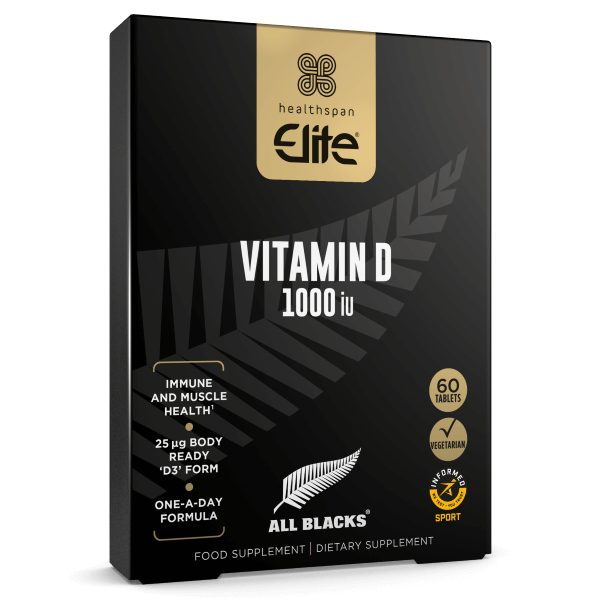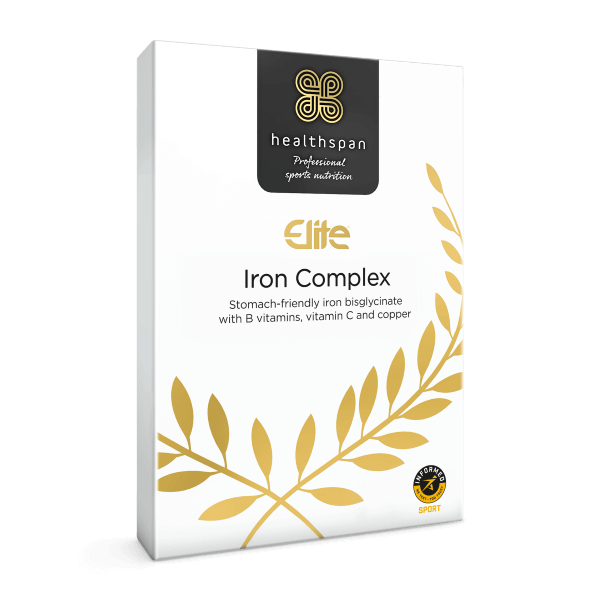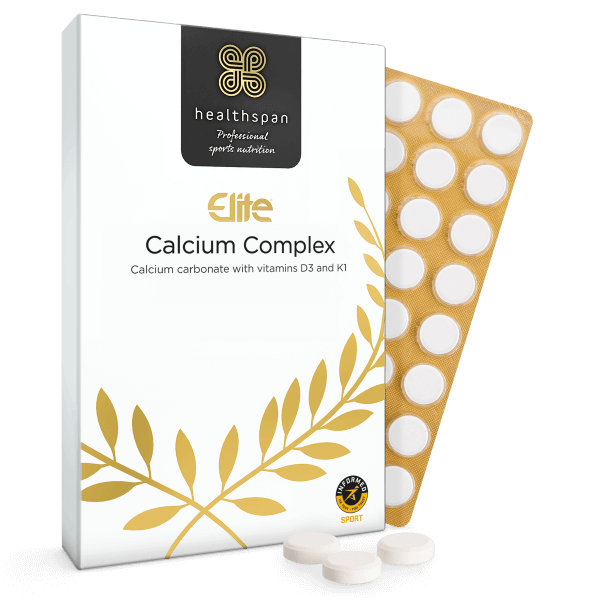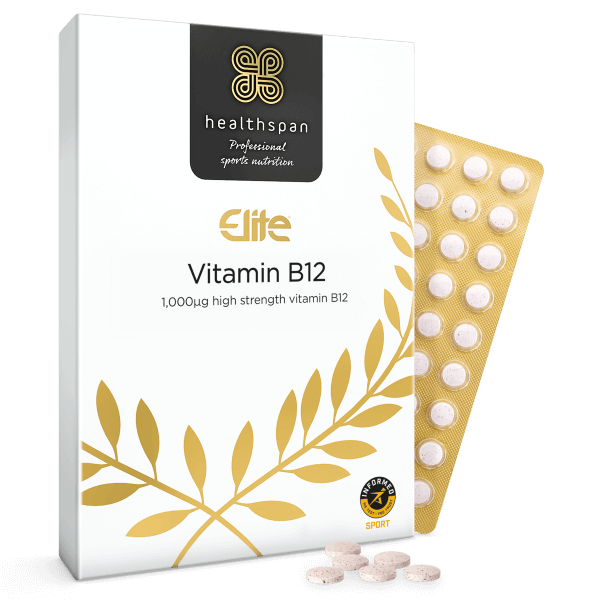Even if an athlete isn't showing any visible symptoms of vitamin and mineral deficiency, their performance may be affected. Sports nutritionist Rob Hobson reveals the top vitamins and minerals every athlete needs for peak performance.
🕒 7 min read
Vitamins and minerals play an essential role in how the body functions, and all apart from vitamin D must be obtained from the diet. These micronutrients also play a role in regulating the processes needed for optimal sports performance, including energy production and the manufacture of new cells and proteins.
Vitamin and mineral deficiency can lead to a measurable decline in performance as the athlete becomes unable to train effectively and is at greater risk of injury. Even subclinical, asymptomatic deficiencies, while harder to detect, may impact performance.
Supplements can be used to help ensure adequate intakes of certain micronutrients or used to treat deficiency, and a supplementation strategy is more effective than a scattered approach.
Several supplements have been highlighted as being more relevant to athletes, given their higher risk of deficiency in that particular nutrient or due to the role a specific nutrient plays in performance outcomes.
Vitamin D
What does vitamin D do?
Vitamin D is both a nutrient sourced from the diet and a hormone made in the body, with a similar structure to the steroid hormone. One of vitamin D's most-understood functions is its role in regulating calcium absorption, which ensures good bone health. Vitamin D is also needed for cell growth and optimal muscle function.
Research has also highlighted the presence of vitamin D receptors in almost all body tissues, suggesting that vitamin D has a role in many aspects of health.
How much vitamin D do athletes need?
Athletes need guidance on optimal levels, and establishing such advice is not straightforward given factors specific to the individual, such as geographic location. It has been shown that among athletes, 56% have insufficient vitamin D levels, and the highest rates of deficiency are found in the UK, Ireland, and Middle Eastern countries.1
Current UK guidance is to supplement with 10mcg (400IU) during the autumn and winter months. Athletes with a vitamin D deficiency may be advised to take much higher doses to correct their vitamin D status, but this should be done under supervision.
What foods contain vitamin D?
The primary source of vitamin D is UV light, but you can obtain small amounts from the diet through foods such as oily fish, liver, and egg yolk, and fortified foods such as breakfast cereals and margarine.
Can you have too much vitamin D?
This will only occur through excessive supplementation, which can lead to a build-up of calcium in the body, known as hypercalcaemia. This can lead to weakened bones and damage to the kidney and heart. An upper safe intake level of 100mcg per day (4000IU) is therefore recommended by the EU.2

All Blacks Vitamin D 1000iu
The sunshine vitamin: an essential nutrient that supports your immune health and normal muscles and bones
- Supports your immune, muscle and bone health
- 1000iu (25mcg) of vitamin D3, the body-ready form
- One-a-day formulation, suitable for vegetarians
Iron
What does iron do?
The primary role of this essential mineral is to ensure the production of healthy red blood cells that carry oxygen around the body. Iron is also involved in energy metabolism (converting food into energy), cognitive function and immunity.
The body cannot make iron, so relies on dietary intake and supplements. Low intakes can lead to fatigue, lethargy, and compromised immunity, which can reduce training effectiveness and impair performance.
How much iron do athletes need?
Current data from the National Diet and Nutrition Survey (NDNS) has shown that 54% of teenage girls and 27% of adult women do not get enough iron in their diet.3 This puts women at greater risk of iron deficiency anaemia.
Athletes are more susceptible to iron deficiency due to the demands exercise puts on their bodies and the finite window of opportunity to replenish iron stores from the diet.
High-risk athlete groups include:
- Females: Additional blood loss during menstruation
- Endurance athletes and those training at altitude: Greater demands on oxygen transport
- Vegetarian and vegan athletes: Plant sources of iron are less readily absorbed in the body
- Athletes with low energy availability: Relative energy deficiency in sport (RED-S)
The UK recommended daily intake for iron is 8.7mg for men and 14.8mg for women. It has been suggested that this figure should be increased for those female athletes at greater risk of deficiency, but this is not an official recommendation.
Research has indicated that female endurance athletes' iron requirements should be increased by 70%,4 a 10mg daily increase over the current recommendation.
What foods contain iron?
Liver, red meat, beans, pulses, lentils, nuts, dried fruit, fortified breakfast cereals and dark green leafy vegetables.
Combining plant sources of iron with foods rich in vitamin C (red peppers, citrus fruits, berries) can improve absorption by up to 400%. Orange fruits and vegetables rich in carotenoids can also enhance absorption, as can fermented foods, which can help reduce the presence of phytates (which can impede iron absorption).
Can you have too much iron?
Taking too much iron in supplements can cause symptoms such as constipation, nausea, abdominal pain, vomiting and diarrhoea. Athletes should seek the advice of a health professional when considering iron supplements.

Elite Iron Complex
Stomach-friendly Iron Bisglycinate with B Vitamins, Vitamin C and Copper
- 14mg of stomach-friendly iron bisglycinate (100% iron NRV)
- B vitamins to support red blood cell formation
- Copper and vitamin C to aid iron absorption into the body
Calcium
What does calcium do?
Calcium is the most abundant mineral in the body and is mainly found in bones and teeth, with a structural and functional role to play. The remaining calcium in the body is used for metabolic functions, including regulating blood pressure, blood clotting and muscle contraction, including in the heart.
How much calcium do athletes need?
Current data from the National Diet and Nutrition Survey (NDNS) has shown that 16% of teenagers and 9% of adults do not get enough calcium in their diet.3
Some athletes may be more at risk than others of inadequate calcium intake, which puts them at risk of poor bone health.
High-risk athlete groups include those with:
- An inadequate intake of dairy or alternative fortified foods (including vegans)
- Undiagnosed or poorly managed gut health conditions, which can affect calcium absorption
- Inadequate fuelling because of excessive dietary restriction
- Menstrual dysfunction
There are no specific guidelines for athletes and calcium intake. The UK recommended daily intake for calcium is 700mg. Higher calcium and vitamin D intakes are recommended to optimise bone health in women with low energy availability and menstrual dysfunction.5
What foods contain calcium?
Dairy foods including milk and cheese, dark green leafy vegetables, fortified foods, bread and anything made with white flour in the UK, as well as canned fish such as sardines and pilchards.
Can you have too much calcium?
Taking too much calcium from supplements may cause stomach pain and diarrhoea symptoms.

Elite Calcium Complex
Chewable tablets containing calcium carbonate and added vitamins D3 and K1
- 1200mg calcium (150% NRV) per recommended intake
- Targeted nutritional support for your bones
- Delicious chewable vanilla-flavoured tablets
Vitamin B12
What does vitamin B12 do?
This is the only member of the B vitamin complex that is not water-soluble and is stored in the liver. Vitamin B12 is used to make healthy red blood cells and helps to keep the nervous system healthy. Vitamin B12 also converts food into energy and helps the body use folate (also required for healthy red blood cells).
How much vitamin B12 do athletes need?
Current data from the National Diet and Nutrition Survey (NDNS) has shown that 3% of teenagers and 5% of adults have vitamin B12 levels below that recognised as deficient.3
Some athletes may be more at risk than others of inadequate B12 intakes, which puts them at risk of deficiency that can impact the delivery of oxygen around the body, leading to tiredness and fatigue.
High-risk athlete groups include those with:
- An inadequate intake of foods rich in B12, and vegans who do not supplement or eat fortified foods.
- Undiagnosed or poorly managed gut health conditions, which can affect B12 absorption
- Inadequate fuelling because of excessive dietary restriction
There are no specific guidelines for athletes and B12 intakes. The UK recommended daily intake for vitamin B12 is about 1.5mcg. It has been recognised that supplementation may be more warranted among vegan athletes.
What foods contain vitamin B12?
Shellfish, oily fish (salmon, trout, mackerel), crab, red meat, and fortified foods such as breakfast cereals, milk and cheese.
Can you have too much vitamin B12?
Evidence is lacking on the effects of taking too much vitamin B12 in supplement form. However, some evidence suggests that taking supplements of 25mcg daily or higher may increase the risk of bone fracture in post-menopausal women.6 This is relevant to masters athletes and may impact athletic performance and training.

Elite Vitamin B12
One-a-day vegan-friendly formulation containing 1,000mcg vitamin B12
- High dose of vitamin B12
- Provides 40,000% NRV
- Reduces tiredness and fatigue










